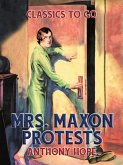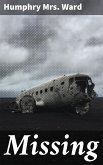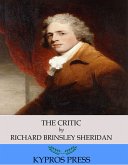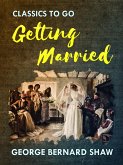In "Mrs. Maxon Protests," Anthony Hope masterfully weaves a narrative that delves into social norms and the complexities of love and duty in Victorian society. The novel employs a blend of sentimentality and humor, encapsulated in Hope's signature wit, as he crafts a tale of a woman constrained by societal expectations while simultaneously challenging them. The storyline revolves around Mrs. Maxon, who, amidst her domestic responsibilities, raises a voice against the restrictive conventions of her time, creating a rich tapestry of character and conflict that resonates with the struggles of her contemporaries. Anthony Hope, renowned for his adventurous spirit in works like "The Prisoner of Zenda," draws upon his own experiences and observations of Victorian society to inform the nuances of Mrs. Maxon's character. Hope's background in law and his keen insight into human psychology enable him to present a vivid exploration of female autonomy and resistance against patriarchal standards. This duality reflects his underlying belief in the necessity of reforming societal norms while simultaneously engaging with the cultural tensions of his era. Anyone interested in a nuanced exploration of gender dynamics and social critique within a cleverly crafted narrative will find "Mrs. Maxon Protests" to be a compelling read. Hope's ability to blend humor with serious themes invites readers to not only laugh but also reflect on the societal constructs that continue to echo in today's world. This work stands as both a poignant critique and an engaging narrative that deserves a place in the canon of Victorian literature.
Dieser Download kann aus rechtlichen Gründen nur mit Rechnungsadresse in A, B, BG, CY, CZ, D, DK, EW, E, FIN, F, GR, H, IRL, I, LT, L, LR, M, NL, PL, P, R, S, SLO, SK ausgeliefert werden.









